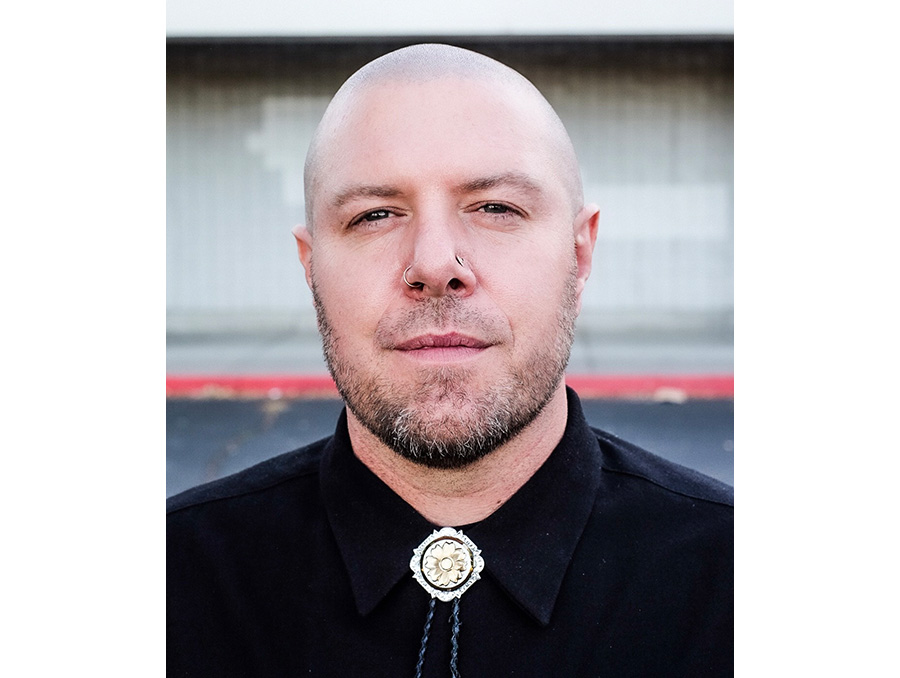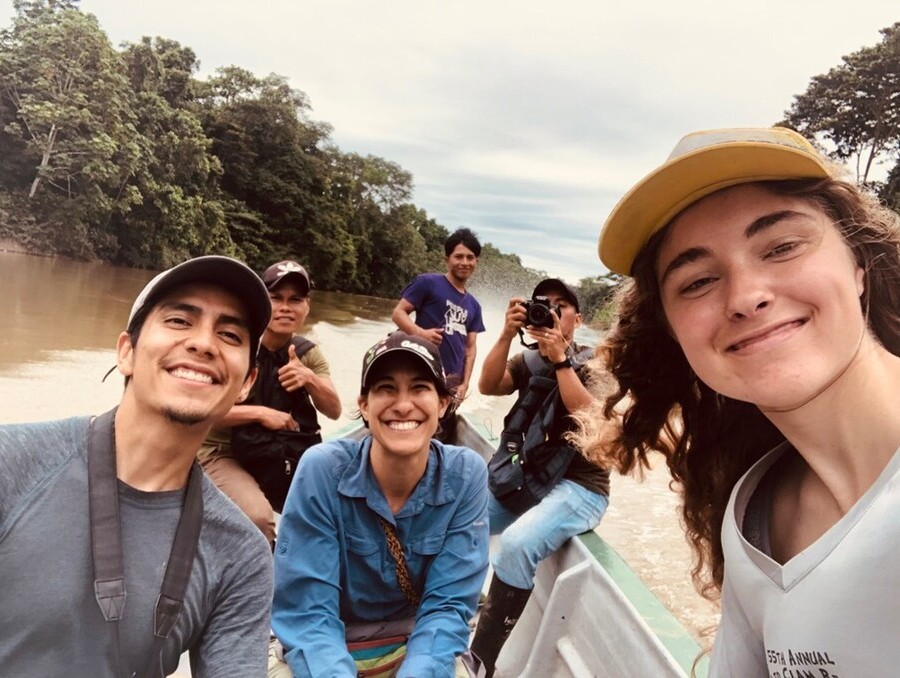In 1996, Larry Struve founded the Silver Pen Award as an extension of the Nevada Writers Hall of Fame’s mission. This University Libraries’ award recognizes mid-career writers who reside in or write about Nevada and who have already achieved notable success for their work. It serves not only to honor the recipients’ talent but also to inspire continued excellence among both emerging and mid-career writers.
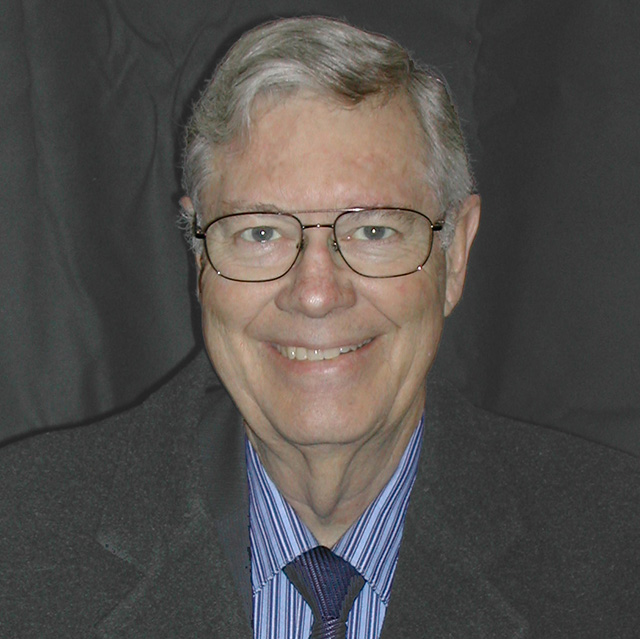
The Nevada Writers Hall of Fame was established in 1988 through the vision of Marilyn Melton, former President of the Friends of the University Libraries. Melton was interested in creating this distinguished Hall of Fame guided by two principal objectives. The first, to create an annual event that honors Nevada’s most distinguished literary figures. And, the second, to foster a culture of excellence among emerging writers throughout the Silver State.
Dean of University Libraries Catherine Cardwell will host this year’s event scheduled for Nov. 7, at 7 p.m. inside the Mathewson-IGT Knowledge Center’s Marilyn R. Melton Nevada Writers Hall of Fame Gallery, the Leslie Harvey and Robert George Whittemore Tower Entry and Reception Gallery, and Wells Fargo Auditorium, all located on the first floor.
The event program includes a welcome and introductions from Dean Cardwell. Next will be a remembrance of Joan Zenan, longtime librarian, founding director of the Savitt Medical Library, University Libraries supporter and Friend of the Libraries. 2025 honorees Keene and Katsimbras will give remarks and do brief readings of their work. Wine and desserts will be served after the program. The Radical Cat book store will be on-site handling book sales. Both Keene and Katsimbras will be available to sign books after the formal program.
Tickets to the Nevada Writers Hall of Fame event are on sale now for $25 per person in advance. Free parking for the duration of the event will be available in the Brian Whalen Parking Complex. For more information contact Maggie Ressel by email or 775-682-5653.
Celebrating Arian Katsimbras
Arian Katsimbras is a native of Reno, Nevada. He earned his BA in English from the University of Nevada, Reno, and his MFA from Virginia Tech. His book, The Wonder Years, is available from Texas A&M University Press. He loves bees and books feverishly — those two spiritual afflictions that keep the world in equilibrium. He resides with his family in Carson City, Nevada.
When Arian Katsimbras saw “UNR Library” displayed on an incoming call to his cell he said he was certain the Libraries were calling to tell him he was at least six months late in turning in a 1st edition copy of Enemy of the Sun that he’d checked out. When he answered the call, he quickly learned the nature of this call was different. He soon learned he had been selected as the 2025 Nevada Writers Hall of Fame Silver Pen awardee.
“I could have sworn I turned that book in,” Katsimbras said. “When I realized the call was not related to a late book, I was so grateful, humbled, quickened. It is truly the honor of my young career to share this Silver Pen award with the literary giants of our state.”
Katsimbras said his journey as an author has always been shaped by place. He started writing in Nevada, and said no matter how far he travels, the state has remained the moral and emotional center of his work.
Drawing inspiration from lived experience, the unspoken codes of family, and the specter of the Nevada desert, Katsimbras uses music, film, and the rhythms of conversation to shape his lines. He finds inspiration in the small gestures of daily life and in the tension between landscape and interiority.
“The desert, the backlots, the long stretches of highway all taught me how silence works, how light can reveal and erase at the same time,” he said. “I began writing because I needed to understand the language of inheritance: how men in my family carried love wrongly and harm rightly, and how I might carry something different forward.”
Katsimbras’ work dwells in the fault lines between silence and survival, something he thinks is indelible about the mythology of the American West.
“I’m drawn to the lives that unfold on the margins of the American West; all the bad fathers, sons, and working folks navigating the inheritances of class, labor, and pockets of quiet,” he said. “The subjects I return to again and again are rooted in Nevada’s landscapes that I know: the dry lakes and sinks and abandoned desert schooners, trailer parks, and backlots that inevitably become metaphors for interior life in 'The Wonder Years.' My poems are often built from small, ordinary objects – a robot toy, a burnt field, a windstorm – but through them, I ultimately try to unravel how memory and violence become a kind of language we inherit. My subjects are personal, but I also push into the mythic. Perhaps this is the task of writers of the New West – haunted by a collective American silence about masculinity, work, and tenderness.”
Knowing the impossible art of poetry
Katsimbras said he fell in love with the percussive and prosodic qualities of language as a child. Hip hop music had a heavy influence on Katsimbras as did Tolkien, Stephen King, Tim Armstrong, Kurt Cobain, "The Outsiders" and "Crime and Punishment."
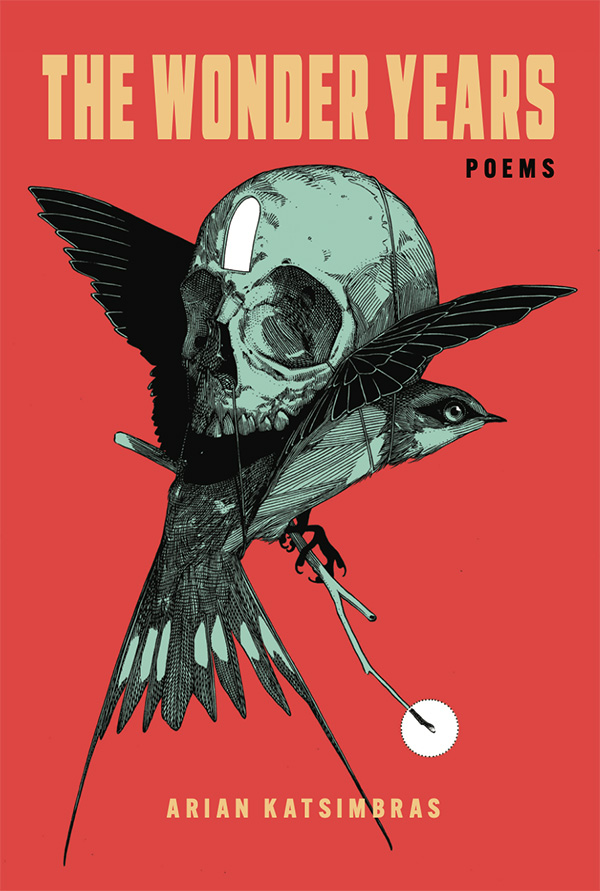
Over time, Katsimbras has been fortunate to study with and learn from writers who showed him how art can grow out of scraped knuckles without the artist losing compassion. He holds Lindsay Wilson and Gailmarie Pahmeier in high regard. He said each “modeled what it means to live as both a poet and a citizen of Nevada, to write from this place as a means of giving back to it, that reciprocity is the lifeblood of this path.”
On finding poetry, he said it is difficult to know which thread to pull on to determine where his passion for poetry developed.
“I had been writing lyrics until I took Lindsay Wilson’s ‘Intro to Poetry’ class at Truckee Meadows Community College in 2008. I’d never read a poem. I had certainly never written one. It was Philip Levine’s book, 'What Work Is,' that decided for me that I wanted to give my life to getting close to knowing the impossible art of poetry. I never looked back, and it has at every moment since then, never ceased to illuminate my life.”
Literary influences
As far as literary influences, Katsimbras returns often to the poetry of Larry Levis and Michael McGriff for the way they transform landscape into memory, and memory into an ecology of myth. The writers Hanif Abdurraqib and James Baldwin taught him that witness must be tethered to grace, that the personal and the political are never separate. Richard Hugo and James Wright gave him permission to write about working people with lyric seriousness, to believe that a small town could carry a god-sized weight and inertia. Willy Vlautin continues to show him what empathy looks like in narrative, the kind that keeps faith with our ordinary people, with their mistakes and small salvations.
“Every step of this journey has felt less like ambition and more like belonging,” Katsimbras said. “Being honored by the Nevada Writers Hall of Fame reminds me more than anything that the work continues, that the beauty in pursuing any of this is located specifically, hotly in the work, that the voices who shaped me are part of a much larger story about what it means to write from, and for, this place.”
On honing your craft
Katsimbras offered advice to other writers interested in working on their craft, “Writing has very little to do with certainty. Keep showing up to the page long enough for the world to reveal itself differently. You’ll know the difference when it comes. If you’re new to this, don’t wait for permission. Write badly. Write privately. There’s this long trafficked-in myth that writers ought to be born from access or proximity to something literary, something profoundly dangerous and traumatic, or both (maybe they’re the same).”
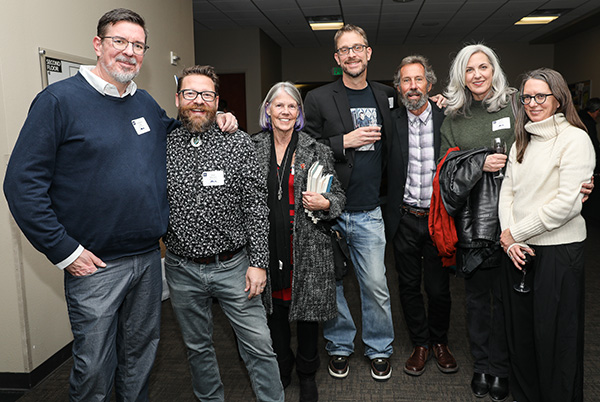
He added, “Read everything. 1989 Volvo repair manuals, popcorn popping instructions, bath salt warning labels, Palestinian love poems, anything by Denis Johnson and, specifically, Ocean Vuong’s first full-length collection, standup comedy Yelp reviews. Grab tangible things and turn them over and over in your hands until they no longer make sense as the original thing, lose all meaning, and see them as profoundly new. Imagine what they’d say to you if they had a mouth. Write that down.
“Know that nobody has the answers to how to make it in this world. If they do, they’re secretly deeply afraid they don’t. There are no rules, save for kindness and service. Let the poems be smarter than you (they often are). Find your tribe. These are often those who are honest with you about your work. Ask them to wield honesty with your work like a cartoon mallet and wallop you into cartoon stars. Nothing matters more than play. If you don’t know this word in this context, read every Toni Morrison book. Don’t mistake ambition for devotion. The first looks outward, the second keeps you in the chair when no one’s watching.”
To learn more about the Nevada Writers Hall of Fame and past Inductees and Awardees, visit the University Libraries' Nevada Writers Hall of Fame webpage.
